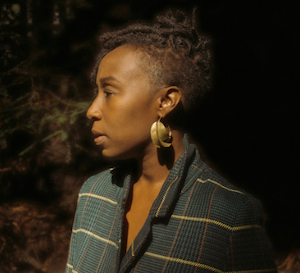Schools Are Where Trees and Children’s Livelihoods Go to Die: A Teacher’s Reflection on Revitalizing Land-Based Education
by Tiffani Marie
But in indigenous ways of knowing, we say that we know a thing when we know it, not only in our physical senses—with our intellect, but when we engage in our intuitive knowing, of emotional knowledge and spiritual knowledge…traditional knowledge engages us in listening, in [asking] what is the story that being might tell us. Robin Wall Kimmerer (Tippett, 2016)
With palms facing the sun, hands laid gently prostrate against their laps, and eyes closed, my 10th-grade English students and I listened to Muwekma Ohlone’s blessings to the land. Then Angus shared his family’s ancestral prayer in Pinyin:
Dàjiā hǎo, wǒ jiào yú ān gé sī. Gǎnxiè nín ràng wǒ jīntiān lái dào zhège shénshèng de kōngjiān. Wǒ yāoqǐng wǒ de zǔxiān yǔ wǒmen tóng zài. Zhù dàjiā shēntǐ jiànkāng, shòu hǎo jiàoyù, xīn xiǎng shì chéng.
Lorenzo closed our ceremony with a Nahuatl song offering:
Monana, motata choka, Pampa ta timonamiktia
Monana, motata choka, Pampa ta timonamiktia
.Xikijli axkanaj ma choka, Pampa axkanaj timikita
.Xikijli axkanaj ma choka, Pampa axkanaj timikita
.Tokomalej uan tokompalej, Xikonikajya, se uinojts
.Tokomalej uan tokompalej, Xikonikajya, se uinojts
 Tiffani Marie hails from a lineage of Arkansas educators. She is also the co-director of the Institute for Regenerative Futures and professor of teacher education and ethnic studies at San Jose State University, where her research focuses on health disparities, the study of anti-Blackness as a social determinant of health, and the embodiment of critical pedagogies as an attenuating agent of toxic stress in Black children. Her broader research interests integrate theoretical frameworks and methods from public health, critical race studies, and education.
Tiffani Marie hails from a lineage of Arkansas educators. She is also the co-director of the Institute for Regenerative Futures and professor of teacher education and ethnic studies at San Jose State University, where her research focuses on health disparities, the study of anti-Blackness as a social determinant of health, and the embodiment of critical pedagogies as an attenuating agent of toxic stress in Black children. Her broader research interests integrate theoretical frameworks and methods from public health, critical race studies, and education.